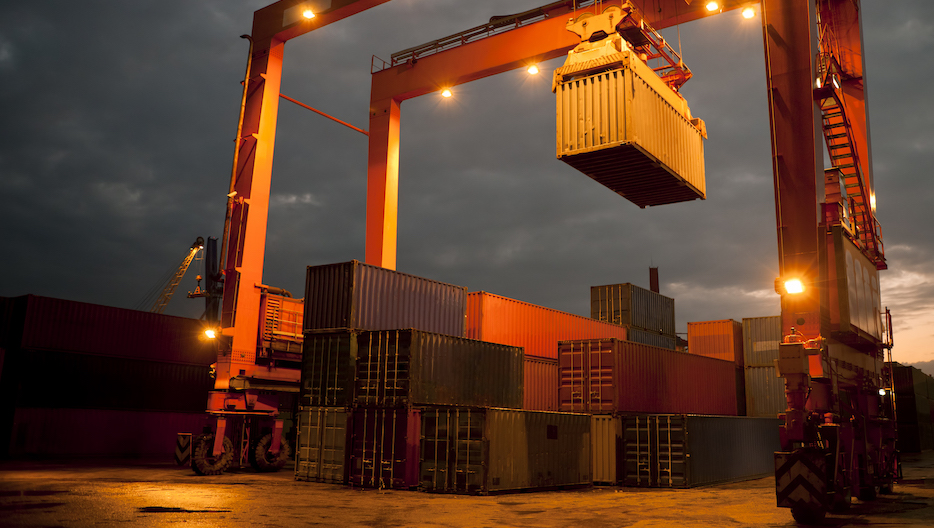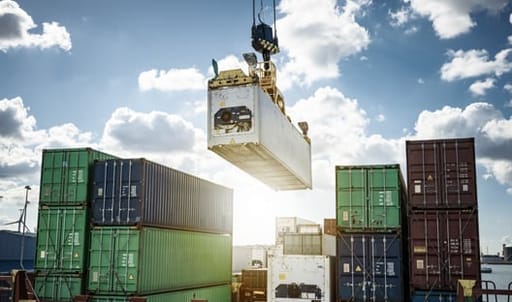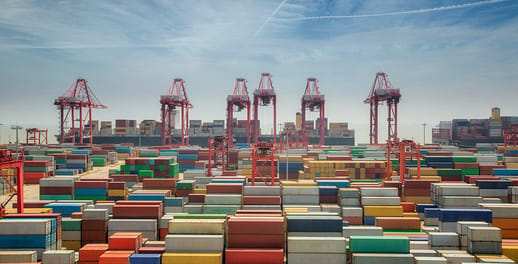Global growth is expected to be subdued, if not stagnant in 2024 and amidst this slow growth and some of the challenging market conditions, global trade is also expected to be sluggish. According to The World Bank global trade growth, in 2024, is anticipated to be only half the average in the decade before the pandemic. “We expect this year to be quite volatile,” says Denys Hobson, Head of Logistics at Investec. “Inflation globally been coming down and the market consensus is for interest rates cuts to come into effect later in the year, GDP growth is still muted."
"Current geopolitical tensions are high. While these tensions currently only have a direct effect on certain regional trade routes such as Europe-Asia, should they escalate, it certainly can destabilise global trade and supply chains in many ways," adds Hobson.
As an example, the recent military strikes in the Red Sea has resulted in sea freight cargo being delayed in transit and subsequently companies impacted have had to airfreight additional stock in to compensate for the sea freight delays. This pushes up the demand for airfreight and with an increase in demand, the airfreight rates also increase. This leads to higher landed costs. Sea freight costs also increase on trades impacted by the current Red Sea situation because shipping lines have diverted their vessels around the Cape of Good Hope which increases their transit times and costs as well as reduces their capacity and equipment availability.
Scroll to 13:21 in this podcast to listen to Denys Hobson in conversation with MoneywebNOW host Simon Brown on South Africa's trade outlook.
“It is also an election year for more than 50 other countries this year and we know that with this, it can create uncertainty in various forms such as investments and policy, but it also can bring about positive sentiment depending on the respective outcomes.”
Hobson also mentions that weather patterns are becoming more volatile and extreme – and can have the ability to impact global capacity and routes. One just has to examine the recent drought in Panama to see the impact of climate change on global trade. “If we start to get significant increases in weather events for extended periods of time, we may see experience disruptions to supply chains.”

South Africa records December trade surplus of R14.1bn
Denys Hobson speaks to CNBC Africa about the factors behind South Africa's trade balance surplus in December 2023.
Transport woes
From a South African perspective, the biggest concern is the efficiency of ports and rail infrastructure.
“If sustainable progress doesn’t get made soon we may see further route and capacity changes on the South African in and outbound routes as it has become too expensive to have vessels stuck in ports for days and weeks,” says Hobson.
“Shipping lines could utilise their capacity more effectively on other trades if required. We may even see some remove direct sailings or only have limited sailings coming into South Africa – which will reduce available capacity and increase freight rates”.
Transnet’s financial performance is worrying and all eyes will be on National Treasury’s budget speech in February regarding a possible bailout. Key leadership positions within Transnet also need to be finalised.
Partner with Investec
Optimise your import business with an end-to-end logistics and inventory finance solution.

The Transnet conundrum
The Rand is also expected to remain under pressure and with ongoing concerns around Transnet and loadshedding, investor confidence remains muted. Moreover, it’s a big election year this year, which may cause some uncertainty.
“While much is underway at Transnet to improve performance across multiple areas, we still don’t expect rail to operate efficiently this year and is likely still going to be a hinderance to the industry and South Africa’s economic growth,” adds Hobson.
“To get it where it needs to be, with tangible change, it is going to require substantial collaboration across private and government sectors as rail and ports need to work together to achieve meaningful change and progress. This of course will require the clear policies, transparency, investment, and decisive leadership.”
“Generally, given the last few years, we should be able to adapt much quicker to supply chain shocks – learning from the lessons from the past and being able to adjust to any disruptions. However, importers need to be cautious, they need to watch their costs closely, adjust lead times where required and examine ways of ensuring that their working capital is effectively utilised.
"Financial discipline is key and market conditions will eventually become more buoyant which will open additional avenues and opportunities for growth both locally and abroad, they need to be able to take advantage of these."
Hobson’s advice: Close collaboration with your key supply chain stakeholders and financial partner(s) is essential. Have a clear understanding of changes to market and industry conditions and the impacts these could have – they do present opportunities. Take time to plan effectively for scenarios that could pose a risk to your business.
Comprehensive offerings to support your business growth
Our working capital finance is designed to boost and free up cash for optimising or growing your business. We offer a number of tailored financing solutions to suit your business needs.

Trade Finance
We provide financing for the purchase of stock and services on terms that closely align with your working capital cycle. For importers, our fully integrated solution provides a single point of contact for the end-to-end management of your imports, including order tracking, the hedging of foreign exchange risk, the physical supply of product, and the provision of a consolidated landed cost per item on delivery.

Debtor Finance
Funding the needs of your business by leveraging your balance sheet (debtors, stock, and other assets) to provide you niche asset-based lending or longer-term growth funding to assist you in growing your business and creating shareholder value.

Asset Finance
Niche funding for the purchase of the productive assets and other capital requirements needed to grow your business. We alleviate the requirement for the upfront capital investment in these assets.

